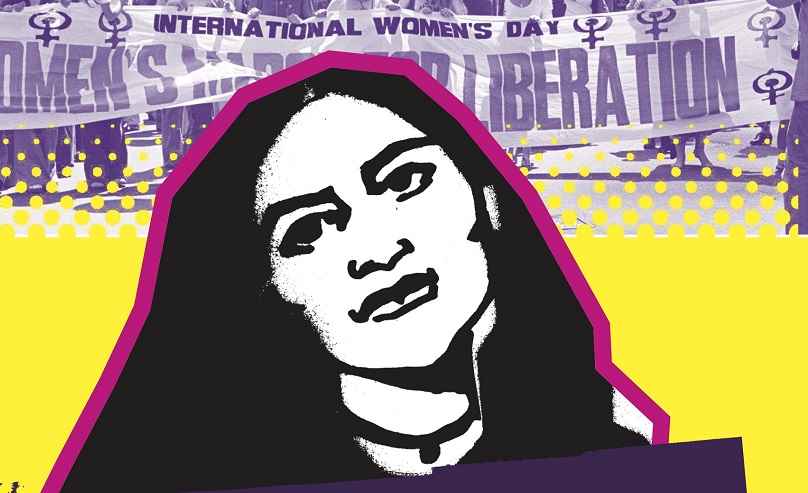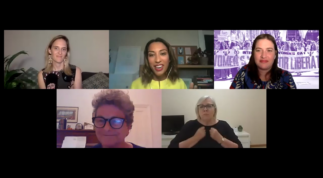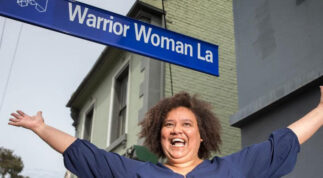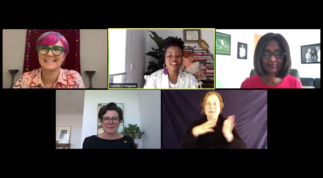“History has to be told over and over again because people forget and unless it’s retold, it’s lost.”
Margot Nash, Brazen Hussies
On November 18, we we’re thrilled to invite you to a special screening of feature documentary, Brazen Hussies (2020). A film which celebrates the legacy of the bold women who re-ignited the feminist revolution in Australia, giving rise to the Women’s Liberation Movement (1965 -1975).
Interweaving freshly uncovered archival footage, personal photographs, memorabilia and lively personal accounts from activists, Brazen Hussies shows us how a daring and diverse group of women joined forces to defy the status quo, demand equality and create profound social change – contributing to one of the greatest social movements of the 20th Century.
Following the film, more than 500 of us congregated virtually on Zoom for an insightful panel discussion lead by Brazen Hussies director Catherine Dwyer, Dr. Emma Fulu (Executive Director, the Equality Institute) and Christina Hobbs (CEO, Verve Super), moderated by Mary Crooks AO (Executive Director, VWT).
Emma gave voice to the feeling among us, “It was so inspiring and I finished it feeling grateful for those who have come before us. I’m a single mum and I’ve been able to build a career that I wouldn’t have been able to perhaps in the past.”
“‘Emotional’ is the word watching Brazen Hussies,” said Christina. “That feeling of inspiration and energy of the women of that time. It’s such an important part of our history to remember and I think we’ve come so far but still have so far to go.”
Undeniable gains have been made since the 1970s, however as Catherine pointed out, progress is not linear. “It’s a huge thing for young women today, to take for granted and never question that they’re a part of the public and have just as much a right as a citizen is amazing, but on the other hand, we don’t have as much participation in who runs the country… but I do think things change once women have children and things can revert to the old ways very quickly where women do more of the unpaid domestic labour.”
“There’s progress but there’s also significant backlash”, agreed Emma. “We see the vitriolic language directed toward some women in the film then, now we have trolling and it’s that times a million. On the surface we can see progress and general agreement with the idea of equality, but rape victims are still blamed. And you still have this idea that feminists are just complaining. There’s things I could see in the movie that may have moved into different spaces but they’re still there.”
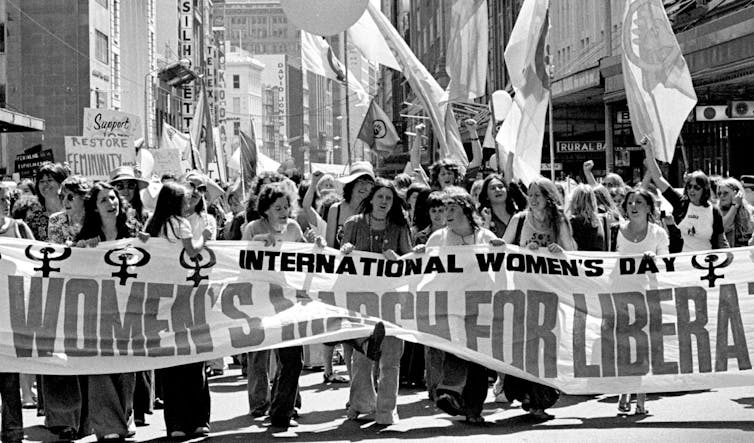
Photo by Anne Roberts, courtesy Mitchell Library, State Library of New South Wales and SEARCH Foundation.
An ode to the pioneers and leaders of the second-wave in Australia, Brazen Hussies confronts the movement’s whiteness and balances accounts of those at the forefront with those who were not. Pat O’Shane (activist, barrister and the first Aboriginal law graduate in Australia) talked to the movement’s marginalisation of Blak women;
“When I first got involved with the women’s groups, I found a lot of them, frankly, really racist. Unconscious racism. If I confronted them, they denied it. I couldn’t understand why they couldn’t see themselves. But they’d never really had contact with Aboriginal people. There’s no question that there’s a huge gulf between the white women’s movement and the struggles of Indigenous women.”
“The feminist movement constantly needs to look very closely at its embrace (or lack thereof) of women of colour”, said Mary. “We can all be working really, really hard, but if we want to be really inclusive and advocate as deeply as possible for the elimination of injustices, then we have to look inside ourselves. And we have to get rid of the unconscious racism and embrace diversity in full.”
“We need to share stories of marginalised experiences because those with most privilege often get to share theirs” said Catherine, “and it’s so important to understand that some people have different experiences and that we allow them to tell their stories, and if we have privilege, provide a way to share them.”
Brazen Hussies is energising, emboldening and the kind of doco we need this year. Now in all good cinemas, go see it and spread the word.
Thank you to the makers of Brazen Hussies for making their film accessible to the Victorian Women’s Trust community.
